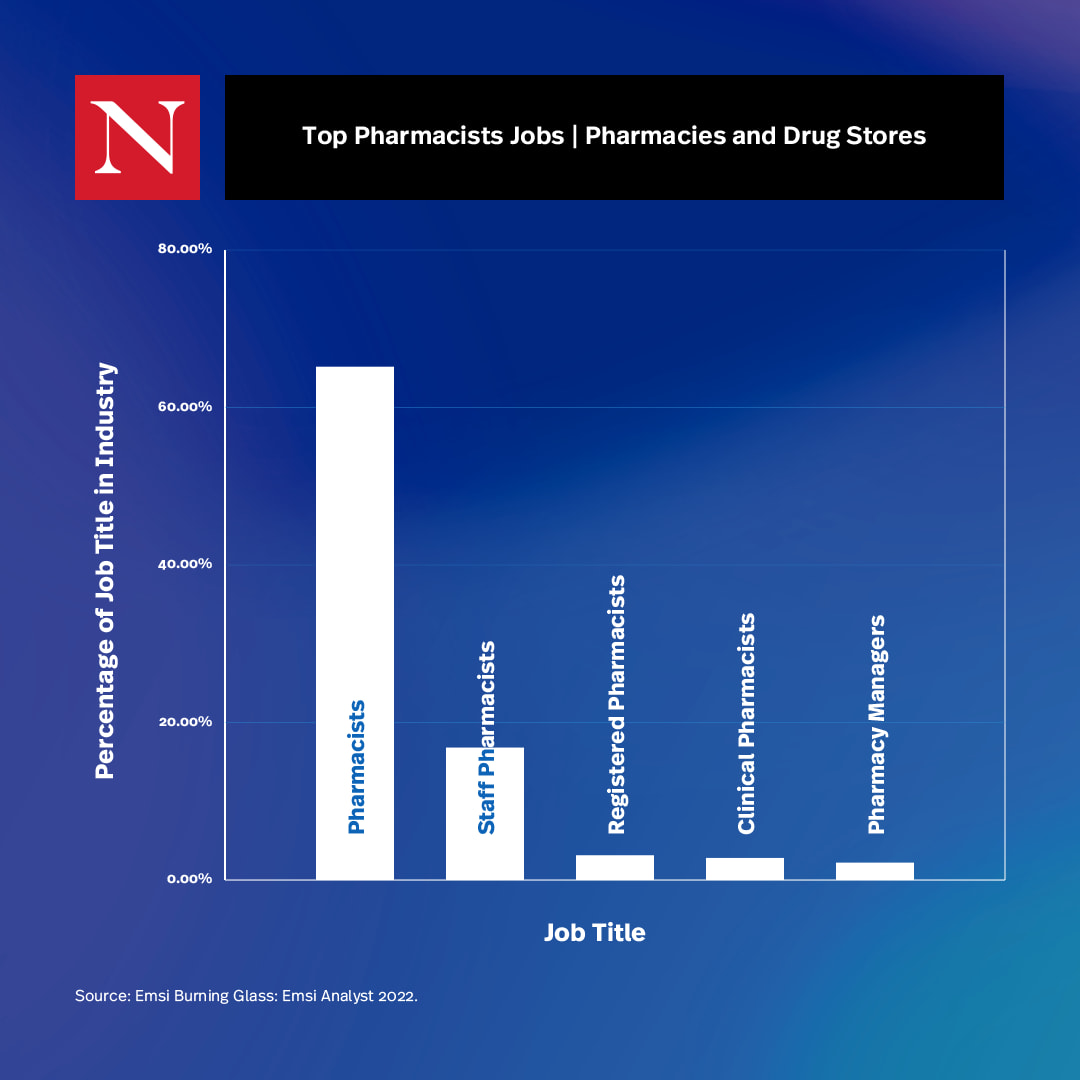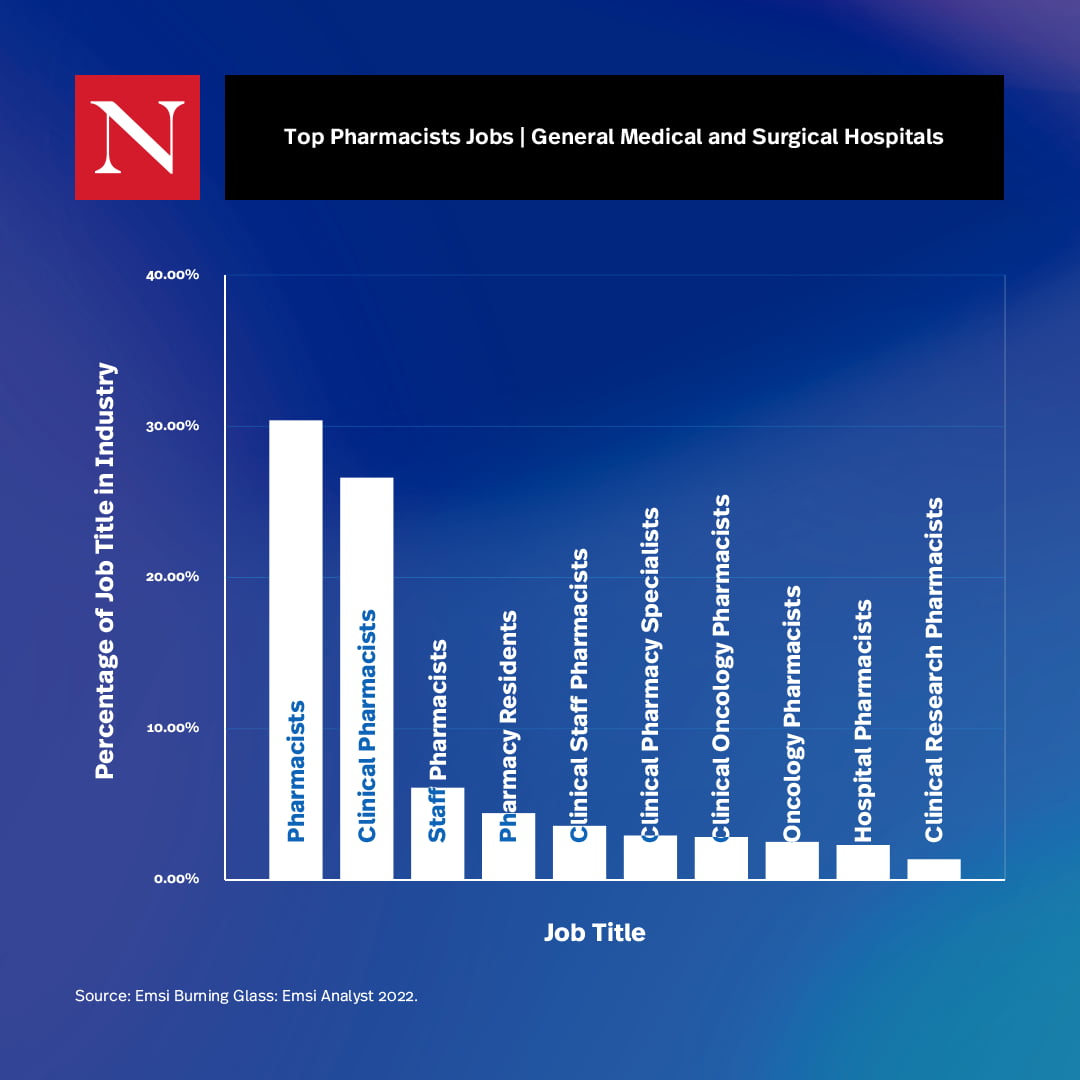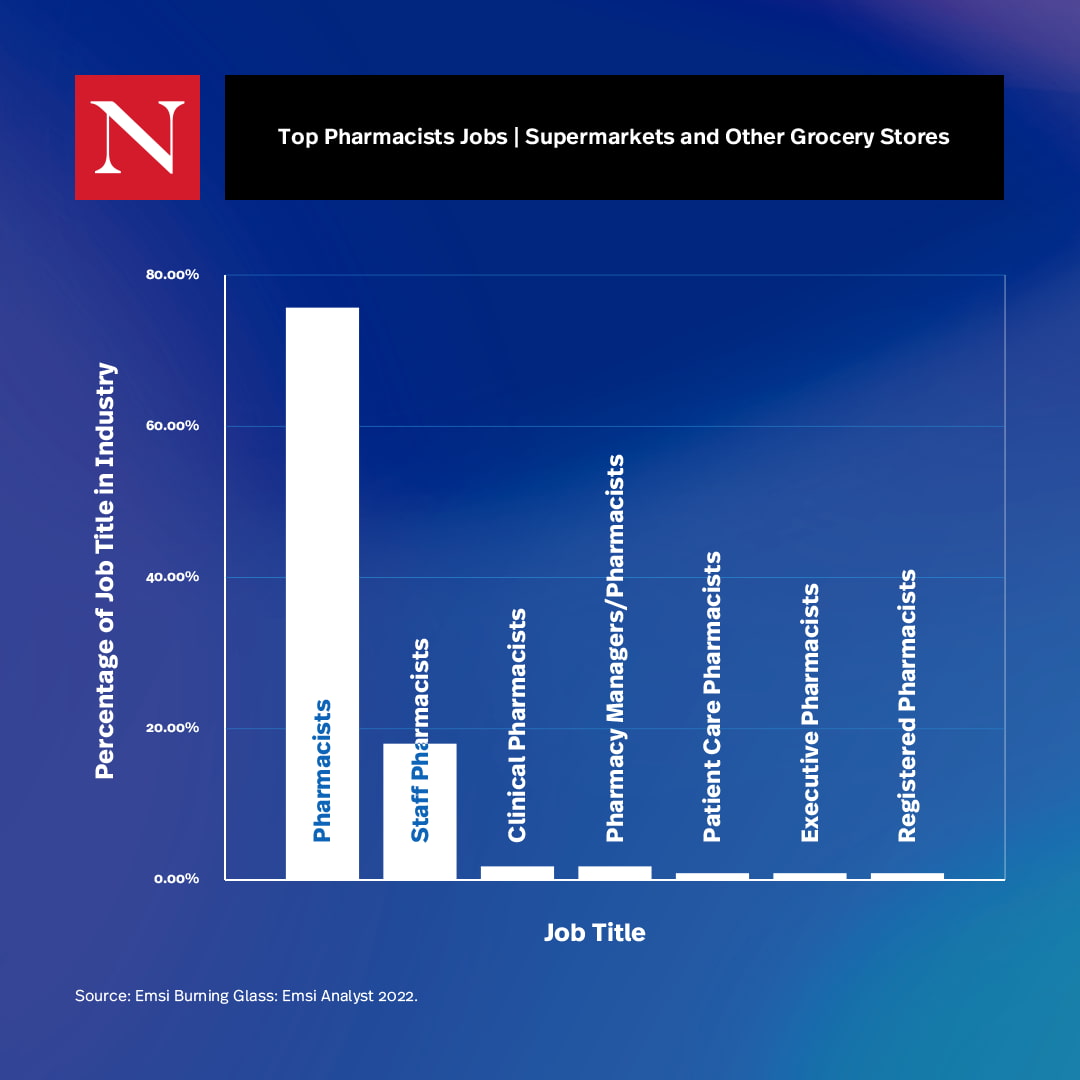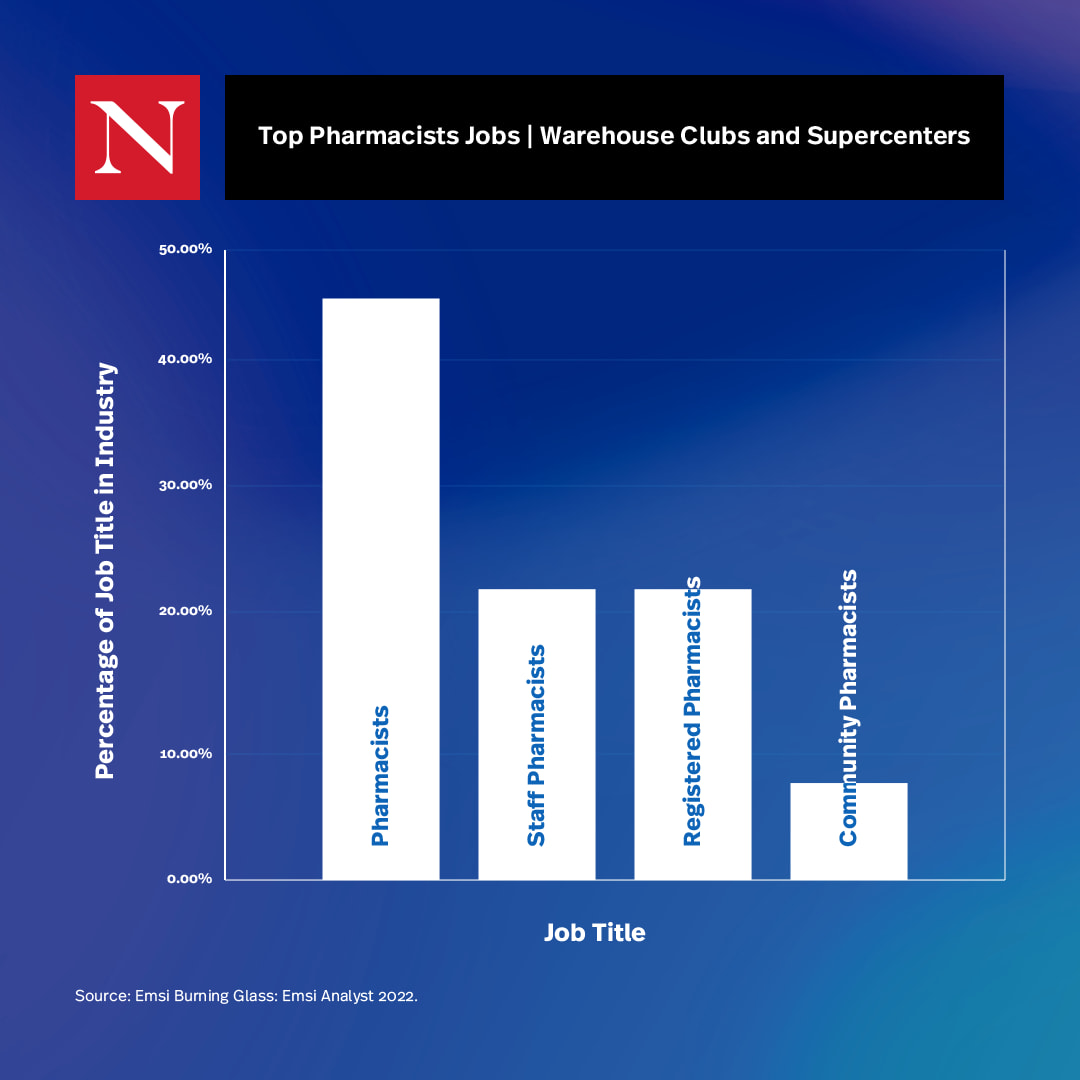Pharmacist roles have evolved as their accessibility to the public has increased. Today, most people in the United States live within five miles of a pharmacy location, meaning many of the tasks traditionally performed by doctors or physicians have shifted to pharmacists. For example, pharmacists now administer vaccinations and perform a high volume of diagnostic tests for Covid-19.
This expansion of responsibility and the versatility of the pharmacy field are two reasons pursuing this career path is appealing to many prospective healthcare professionals. If you’re curious about the different career options available, here are five different types of pharmacists and an industry overview.
Career Options
1. Community Pharmacist
As someone who has likely visited a supermarket or drugstore, you’ve probably encountered community pharmacists. These pharmacists are often seen in retail like CVS, Walgreens, or independent, family-owned pharmacies.
A typical workday involves interacting with patients, dispensing over-the-counter medication, and educating customers on the risks and proper administration of prescriptions. Community pharmacies offer many opportunities for growth and career advancement. These pharmacists can work in management positions with titles such as Pharmacists in Charge (PIC) or regional managers. It’s important to note that most pharmacists work in a community setting at some point during their careers.
Download Our Free Guide to Advancing Your Pharmacy Career
Learn how a PharmD can give you the skills for success in the industry.
2. Long-Term Care Pharmacist
Long-term care (LTC) pharmacists work in a setting that provides medications for LTC facilities, such as nursing homes or skilled rehabs. These pharmacists work directly with these facilities to provide the treatment each patient needs and must adhere to strict packaging and regulatory requirements. There are also LTC dispensing opportunities within this field to ensure that each patient receives accurate medication.
3. Consultant Pharmacist
Many industries have a consultant sector that provides guidance to various work settings. Pharmacy is no exception. Consultant pharmacists provide clinical expertise to healthcare providers in a wide variety of settings in the pharmacy field. As the title implies, these pharmacists collaborate with diverse populations in communities, hospitals, LTC, and other locations.
Consultant pharmacists generally perform medication reviews based on patient history, evaluate all factors of different medications and therapies, and complete medical chart reviews for their various partners in an effort to improve their workflows. They may also provide medication management, which can include drug monitoring, documentation, and administration.
4. Clinical Pharmacist
Clinical pharmacy is a very team-focused career path. The day-to-day requirements can vary based on specialization, but generally, these pharmacists collaborate with physicians, nurses, and other health professionals to prescribe and administer medications to patients to treat their various health conditions. Clinical pharmacists are most commonly found in hospital pharmacies or community health centers.
Pharmacists in this field can hold different job titles depending on their expertise. Some of these titles include:
- Cardiology pharmacist
- Critical care pharmacist
- Pediatric pharmacist
- Geriatric pharmacist
- Ambulatory care pharmacist
Clinical pharmacists can specialize in almost any area medical doctors can. For this reason, opportunities for clinical pharmacists are expanding. Many are receiving specialized training and board certifications to demonstrate their expertise in certain areas.
5. Industry Pharmacist
Pharmaceutical industry roles are typically highly competitive, especially in the Greater Boston area. This pharmacy niche is rapidly expanding as more pharmaceutical companies are investing in the research and development of new drugs.
An industry pharmacist is highly business-oriented rather than involved with direct patient care. This role can focus on various departments such as marketing, sales, or even research and development. If you would instead work in a behind-the-scenes capacity, this industry may be an excellent choice for you.
Top Pharmacy Industries
While there are a plethora of career options for you to get a foot in the door, it’s important for prospective pharmacists also to be aware of the fields with the most opportunities. Here are some of the top pharmacy industries in Massachusetts.
Pharmacies and Drug Stores
An estimated 42.7 percent of pharmacists in Massachusetts work in pharmacies and drug stores such as CVS and Walgreens. While the majority of these roles are community pharmacists, there are several different job titles available in this industry, including:

- Staff Pharmacists
- Registered Pharmacists
- Clinical Pharmacists
- Pharmacy Managers
- Pharmacists in Charge (PIC)
- Consultant Pharmacists
- Retail Pharmacists
- Float Pharmacists
This field is an excellent starting point that offers an opportunity to make a difference while providing multiple growth opportunities.
General Medical and Surgical Hospitals
Hospital settings are another popular choice for pharmacists in Massachusetts. Approximately 21 percent of pharmacists operate in general medical and surgical hospitals such as Massachusetts General Hospital and the Boston Children’s Hospital. The majority of pharmacists who work in this setting are clinical pharmacists, but these pharmacists can specialize in different areas. Hospitals are also a popular choice for pharmacy students to complete their residencies. Some of the most frequently listed job titles in job postings include:

- Clinical Pharmacists
- Staff Pharmacists
- Pharmacy Residents
- Clinical Staff Pharmacists
- Clinical Pharmacy Specialists
- Clinical Oncology Pharmacists
- Oncology Pharmacists
- Hospital Pharmacists
Supermarkets and Grocery Stores
Pharmacists who work in supermarkets and grocery stores—with the exception of convenience stores—comprise 7.2 percent of Massachusetts pharmacists. This industry is also an excellent choice for community pharmacists, but there are several job titles for pharmacists in this industry, such as:

- Staff Pharmacists
- Clinical Pharmacists
- Pharmacy Managers/Pharmacists
- Patient Care Pharmacists
- Executive Pharmacists
- Registered Pharmacists
Warehouse Clubs and Supercenters
A supercenter may not be the first location that comes to mind when you think of job opportunities for pharmacists, but approximately 2.8 percent of pharmacists in Massachusetts work at one. Costco Wholesale is the largest supercenter with a pharmacy in Massachusetts and frequently hires for the following job titles:

- Staff Pharmacists
- Registered Pharmacists
- Community Pharmacists
Narrowing Down Your Options
Remember that this list is not comprehensive. There are more than 100 career paths pharmacists can pursue. Deciding what route to take depends on your interests, where you would like to work, and your specific training. Here are five tips for future pharmacists to help select the right career path.
1. Determine your career goals
It’s crucial to be aware of your personal career goals. Make sure you understand why you’re pursuing pharmacy as a career. It can be an excellent career if you want to make a difference in patients’ lives by aiding their recovery. While there are several reasons why obtaining a pharmacy degree is worth the investment, it’s essential to establish what’s important to you. Narrow your search by considering what patient and healthcare professional population you want to work with or the work setting that most appeals to you.
2. Consult your peers
Your professional network can also help you make the right choice. If you’re attending a pharmacy school, consult with your professors, academic advisors, or fellow students pursuing pharmacy. Getting the advice of trusted individuals is highly valuable in deciding which career path to pursue.
3. Consult with pharmacists
Developing your professional network can also help you make an informed decision. Try to connect with pharmacists in each industry to learn more about their specific positions. One way to do this is through the social media platform LinkedIn. This offers a wider range of professionals at your disposal, no matter their location or public visibility. Another option is to reach out to your local pharmacist and ask if they would be willing to meet with you to discuss the industry.
4. Conduct your own research
In addition to consulting others, use your previously established goals to conduct your own research. Not only can this help you select a pharmacy career path, but it can keep you up-to-date on the latest happenings in the pharmacy industry.
5. Realize that your first job won’t be your last
Keep in mind that whatever decision you make isn’t final. You will always have the option to move positions and even industries. Don’t put so much pressure on this decision, thinking that you’re stuck in the area of pharmacy you choose during the early stages of your career. Your first job is never your “forever” job, so view every position as an opportunity to learn and grow your skillset.
Taking the Next Step in Your Career
As someone interested in starting a career in pharmacy, your next step is to obtain a degree in pharmacy from an accredited college or university, such as Northeastern University’s School of Pharmacy and Pharmaceutical Sciences. Whether you are still in the process of (or have already obtained) a bachelor’s degree, there is a point of entry for you in a PharmD program. Depending on where you are in your higher education, you can acquire your degree in four to six years.
What are you waiting for? Choose the right program that will springboard you into a successful career and help you pick which career path is the best fit for you.







Related Articles
PhD vs. Master’s in Biomedical Science: What’s the Difference?
10 Top Careers in Biomedical Science
What Is Medicinal Chemistry?